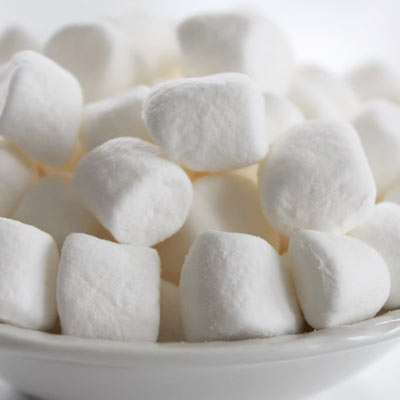

If you have celiac disease or a gluten intolerance you’d be familiar with the answer to questions like these being a tad convoluted.
In short, the good news is if you’re following a gluten free diet you don’t have to be the only one sitting around the campfire without a marshmallow roasting on the end of a stick. Many brands are prioritising gluten allergies, keeping their ingredients list clean(ish) and omitting anything that may contain the offending protein (namely wheat, rye, barley and their by-products).
When the ingredients list is kept simple — with just sugar, water and gelatine — marshmallows are indeed a gluten free treat you can happily enjoy without concern of any gluten-induced after effects.
It’s when ingredients like wheat starch get involved that you’ll find gluten lingering inside. As its name suggests, wheat starch is derived from wheat, which we know contains the offending protein, gluten. While this added ingredient is not necessarily required to make marshmallows, it does frequently appear in ingredients lists depending on the product and brand. One way around this is for brand’s to swap out wheat starch for corn starch, which is naturally free from gluten.
Other common gluten-containing ingredients to look out for in marshmallows include malt, wheat protein, scale cereal and tritium spelta among other things.
The best way to know whether a product is truly gluten free is to look for the Gluten Free label on the packet or to study the ingredients list for known gluten-containing ingredients. Like we said earlier, the fewer the ingredients the better.
Some of the best gluten free marshmallows in Australia include Double 'D' Sugar Free Marshmallows, Dandies All Natural Vanilla Marshmallows and pretty much anything from The Sydney Marshmallow Co.